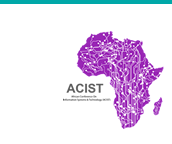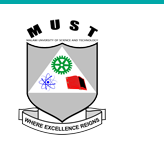Location
Harare, Zimbabwe and Virtual
Start Date
12-9-2024 12:40 PM
End Date
12-9-2024 1:05 PM
Description
This study explores the implementation of a BERT-based model in ZB Bank, Zimbabwe, to improve complaint management and enhance customer satisfaction. Traditional manual handling of client complaints leads to slow responses and unresolved issues. The study aims to develop an accurate complaint classification model using advanced Natural Language Processing (NLP) and machine learning techniques, specifically the BERT model, and assess its real-world performance. The methodology involved collecting a dataset of customer complaints from ZB Bank, pre-processing the text data, and applying the BERT model within the Team Data Science Process (TDSP). The dataset was split into training (80%) and testing (20%) sets, with the BERT model undergoing hyper parameter tuning for accuracy. Results showed that the BERT-based model significantly improved complaint classification efficiency, achieving 88% accuracy, outperforming traditional methods prone to errors and delays. This study underscores the vital role of NLP and machine learning in automating and improving complaint management processes, contributing to better customer satisfaction and operational efficiency.
Included in
A BERT-Based Model for Classifying Customers in the Financial Sector: A case of ZB Bank
Harare, Zimbabwe and Virtual
This study explores the implementation of a BERT-based model in ZB Bank, Zimbabwe, to improve complaint management and enhance customer satisfaction. Traditional manual handling of client complaints leads to slow responses and unresolved issues. The study aims to develop an accurate complaint classification model using advanced Natural Language Processing (NLP) and machine learning techniques, specifically the BERT model, and assess its real-world performance. The methodology involved collecting a dataset of customer complaints from ZB Bank, pre-processing the text data, and applying the BERT model within the Team Data Science Process (TDSP). The dataset was split into training (80%) and testing (20%) sets, with the BERT model undergoing hyper parameter tuning for accuracy. Results showed that the BERT-based model significantly improved complaint classification efficiency, achieving 88% accuracy, outperforming traditional methods prone to errors and delays. This study underscores the vital role of NLP and machine learning in automating and improving complaint management processes, contributing to better customer satisfaction and operational efficiency.



